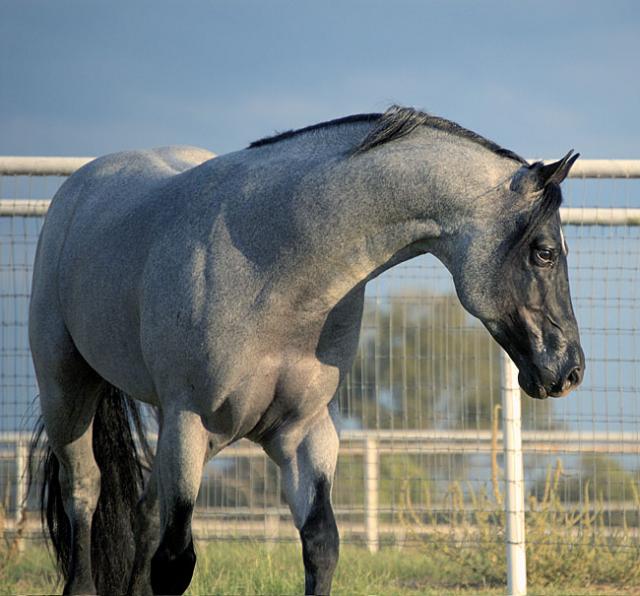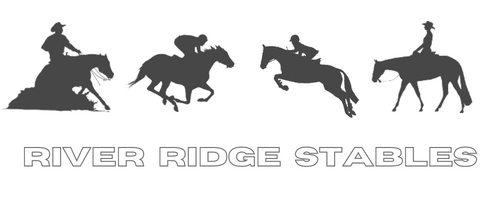Community Forum
Horse World Online
Breed horses and ponies, raise your foals, and train the next champion in this exciting and realistic online horse breeding game.
The new layout is in beta testing and we're inviting you to help us try it out! Click here to read the announcement post for details.
Range
1 post
• Page 1 of 1
-
h0rsey

- Posts: 5012
- Joined: Fri Jan 31, 2020 1:10 pm
- Location: Anywhere the wind blows (doesn't really matter to meeeeee)
- Visit My Farm
Range
Post by h0rsey »
Just thought I'd make this as a little guide for range, how it works, and how you can use it to figure out whether or not your horse is capable of achieving a specific time/score.
So, to start, what is range? One day I noticed that all horses who scored very well in competitions had bad scores that weren't as bad as most horses bad scores. To be clearer, I noticed that a horse whose best time was 1:57 in racing had a worst score of 2:06, whereas a horse that timed best at 2:01 worst score was 2:10. So then I researched all the disciplines and found out that there is something called a range, which means that if your horse scores really good, then it's worst score will be better than most worst scores in that particular discipline.
It took me a while, but I eventually found a few horses that I was certain did not have any temperament, weight, or training changes while competing. Although each of these horses had different best/worst scores, they all had one thing in common. When I subtracted the best score from the worst score, it always resulted in the same number (depending on the discipline, of course). So then I realized that there must be a range that a horse must time/score in HOWEVER... this only applies if your horse's temperament, weight, and training stay the same!!
For example, let's say you compete a horse with high strung, thin, and no training in a few barrel racing competitions. Then, let's say that you finish training the horse, and maybe bump the weight up to moderate. The range will still be 1.5, BUT when you calculate the range you cannot include the competitions where the horse was on a different weight and training because obviously those scores are going to be much worse than after you finish training the horse and have the correct temperament.
Therefore, this range only applies for keeping the temperament, weight, and training the same. I am currently experimenting on the total range - which is range from absolute worst possible conditions (worst weight for that discipline, worst temp for that discipline, and no training) to absolute best possible conditions (best weight for discipline, best temp for discipline, full training) to see if range can be calculated this way. However, this will take me a long time and will not be covered in this topic.
So when looking for range, make sure to remember that your horses conditions (weight, temp, training) MUST stay the same. If you change one of these conditions even slightly, the scores will change and will mess up your range. However, if you do change a condition, make sure to remember what the last competition your horse competed in with the previous conditions in order to correctly calculate range. Putting it in the horse's notes might help!
If you test your horse and want to know if he/she has record-breaking potential right away, just calculate the range! For example, let's say you're competing in dressage and are hoping for a score above 50%. You test your horse in 5 competitions. The best score you horse gets is 45.96, and the worst score is 38.76. Obviously, the horse hasn't found it's range yet because these two numbers don't subtract to equal 10 (usually you don't find the range until about 100 competitions, if not more). However, you can determine whether your horse can get to 50% or not because of the worst current score. Because the range has not been found yet, this could change, but we know that 38.76 + 10 = 48.76, and this means that so far your horse's best score could be 48.76. This does not mean that your horse's best score will definitely be 48.76, BUT it is the potential highest score. Let's say, a week later your horse scores 36.46. Then the highest score it could possibly get is a 46.46, meaning that your horse no longer has the potential to score above this. But maybe then your horse scores a 35.96. Now you for sure know that your horse's best score is 45.96 and worst score is 35.96 because you have found the range.
So anyways, when using this chart the most important thing to remember is that the conditions must stay the same. If you find that your horses range is more than in the chart, it’s probably because the conditions have changed. But if the horse’s range is less than one of these ranges, that probably means that the horse just hasn’t scored its best or worst yet, it’s range hasn’t been found.
Hopefully this is helpful to some of you!
Chart of all ranges:
So, to start, what is range? One day I noticed that all horses who scored very well in competitions had bad scores that weren't as bad as most horses bad scores. To be clearer, I noticed that a horse whose best time was 1:57 in racing had a worst score of 2:06, whereas a horse that timed best at 2:01 worst score was 2:10. So then I researched all the disciplines and found out that there is something called a range, which means that if your horse scores really good, then it's worst score will be better than most worst scores in that particular discipline.
It took me a while, but I eventually found a few horses that I was certain did not have any temperament, weight, or training changes while competing. Although each of these horses had different best/worst scores, they all had one thing in common. When I subtracted the best score from the worst score, it always resulted in the same number (depending on the discipline, of course). So then I realized that there must be a range that a horse must time/score in HOWEVER... this only applies if your horse's temperament, weight, and training stay the same!!
For example, let's say you compete a horse with high strung, thin, and no training in a few barrel racing competitions. Then, let's say that you finish training the horse, and maybe bump the weight up to moderate. The range will still be 1.5, BUT when you calculate the range you cannot include the competitions where the horse was on a different weight and training because obviously those scores are going to be much worse than after you finish training the horse and have the correct temperament.
Therefore, this range only applies for keeping the temperament, weight, and training the same. I am currently experimenting on the total range - which is range from absolute worst possible conditions (worst weight for that discipline, worst temp for that discipline, and no training) to absolute best possible conditions (best weight for discipline, best temp for discipline, full training) to see if range can be calculated this way. However, this will take me a long time and will not be covered in this topic.
So when looking for range, make sure to remember that your horses conditions (weight, temp, training) MUST stay the same. If you change one of these conditions even slightly, the scores will change and will mess up your range. However, if you do change a condition, make sure to remember what the last competition your horse competed in with the previous conditions in order to correctly calculate range. Putting it in the horse's notes might help!
If you test your horse and want to know if he/she has record-breaking potential right away, just calculate the range! For example, let's say you're competing in dressage and are hoping for a score above 50%. You test your horse in 5 competitions. The best score you horse gets is 45.96, and the worst score is 38.76. Obviously, the horse hasn't found it's range yet because these two numbers don't subtract to equal 10 (usually you don't find the range until about 100 competitions, if not more). However, you can determine whether your horse can get to 50% or not because of the worst current score. Because the range has not been found yet, this could change, but we know that 38.76 + 10 = 48.76, and this means that so far your horse's best score could be 48.76. This does not mean that your horse's best score will definitely be 48.76, BUT it is the potential highest score. Let's say, a week later your horse scores 36.46. Then the highest score it could possibly get is a 46.46, meaning that your horse no longer has the potential to score above this. But maybe then your horse scores a 35.96. Now you for sure know that your horse's best score is 45.96 and worst score is 35.96 because you have found the range.
So anyways, when using this chart the most important thing to remember is that the conditions must stay the same. If you find that your horses range is more than in the chart, it’s probably because the conditions have changed. But if the horse’s range is less than one of these ranges, that probably means that the horse just hasn’t scored its best or worst yet, it’s range hasn’t been found.
Hopefully this is helpful to some of you!
Chart of all ranges:
| Barrel Racing | 1.5 |
| Cutting | 2.5 |
| Cross Country | 6.0 |
| Dressage | 10.0 |
| Driven Dressage | 10.0 |
| Endurance | 1.5 |
| Harness Racing | 11.5 |
| Hunter | 10.0 |
| In-hand Jumping | 10.0 |
| Marathon Driving | 5.0 |
| Obstacle Driving | 10.0 |
| Pole Bending | 2.0 |
| Racing | 9.0 |
| Reining | 10.0 |
| Saddleseat | 10.0 |
| Show Jumping | 13.0 |
| Spring Racing | 3.0 |
| Steeplechasing | 45.5 |
| Western Pleasure | 10.0 |
| Western Trail | 10.0 |
| Working Ranch | 10.0 |

1 post
• Page 1 of 1
Jump to
- General Discussion
- ↳ Announcements
- ↳ Weekly Development Updates
- ↳ General Chit Chat
- ↳ Contests
- ↳ What Colour Is My Horse?
- ↳ Comments and Suggestions
- ↳ Suggestions Archive
- ↳ Breeding Communities
- ↳ Farm Logs
- Marketplace
- ↳ Horses for Sale
- ↳ Stallions at Stud
- Knowledgebase & Guides
- ↳ Gameplay Questions & Help
- ↳ Guides & How To
- Technical
- ↳ Change Log v3
- Guest Discussions
- ↳ Public Questions & Answers
